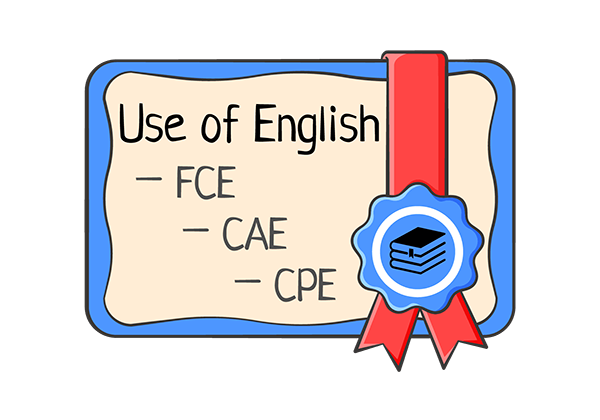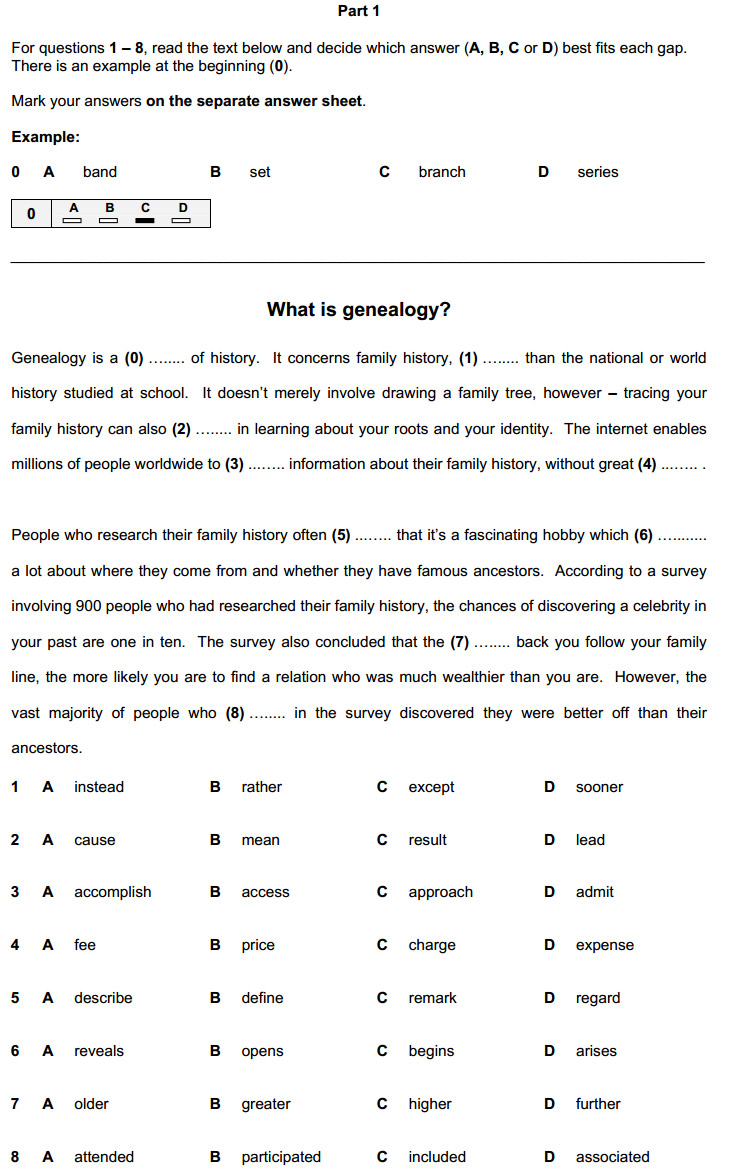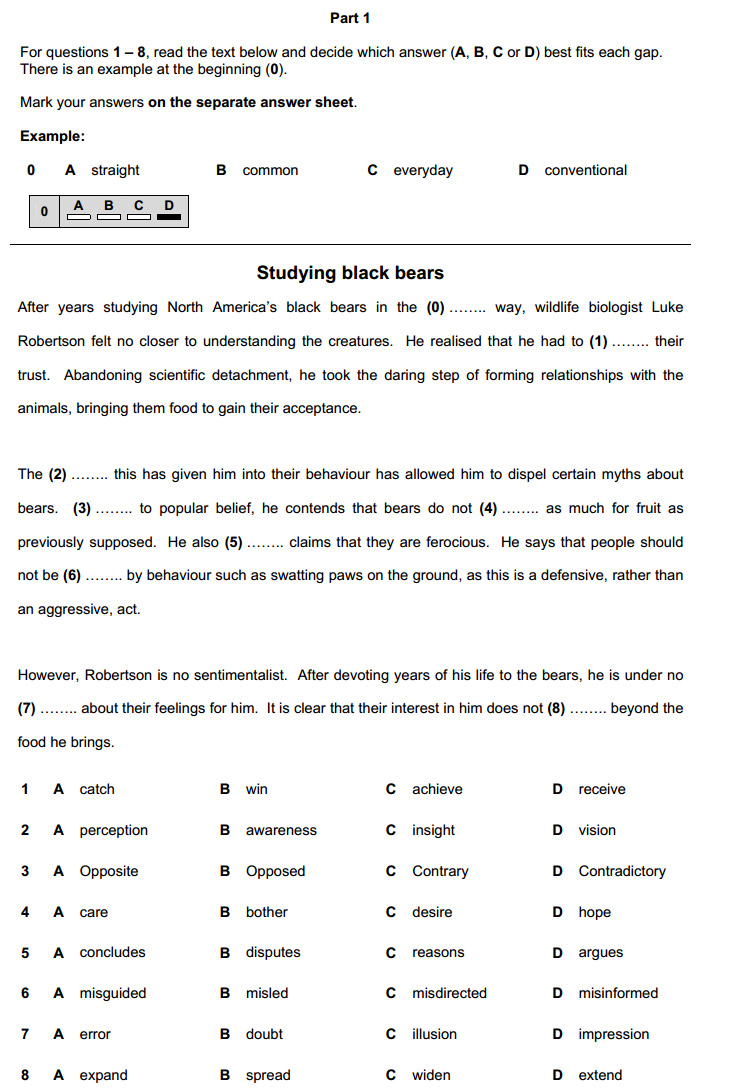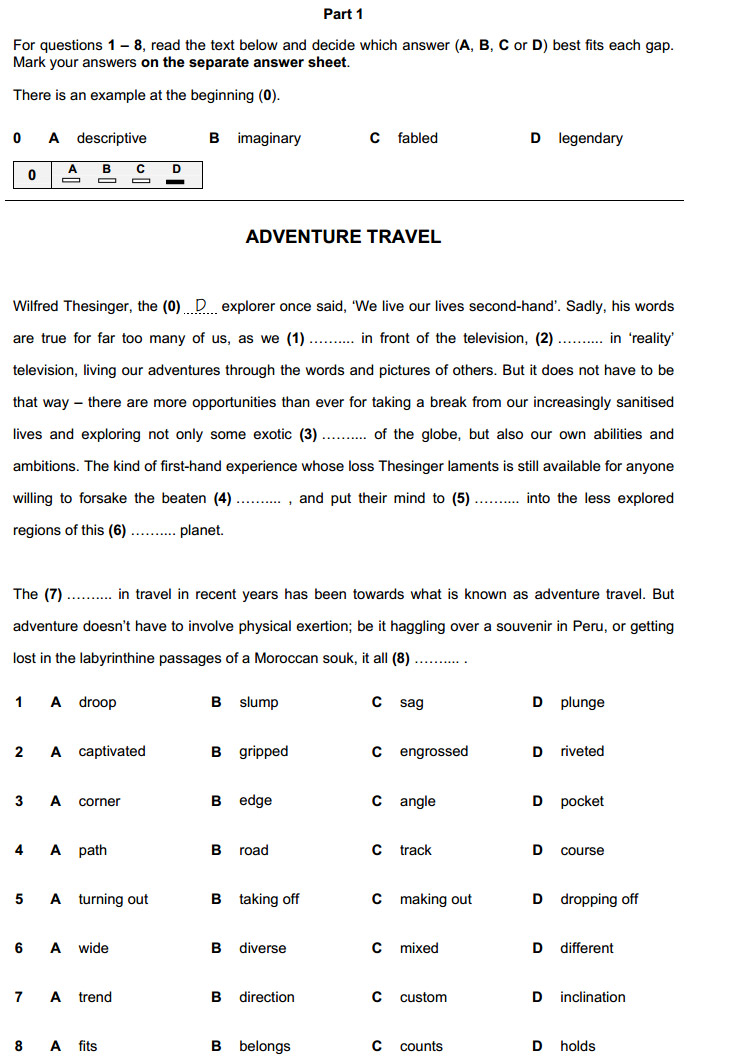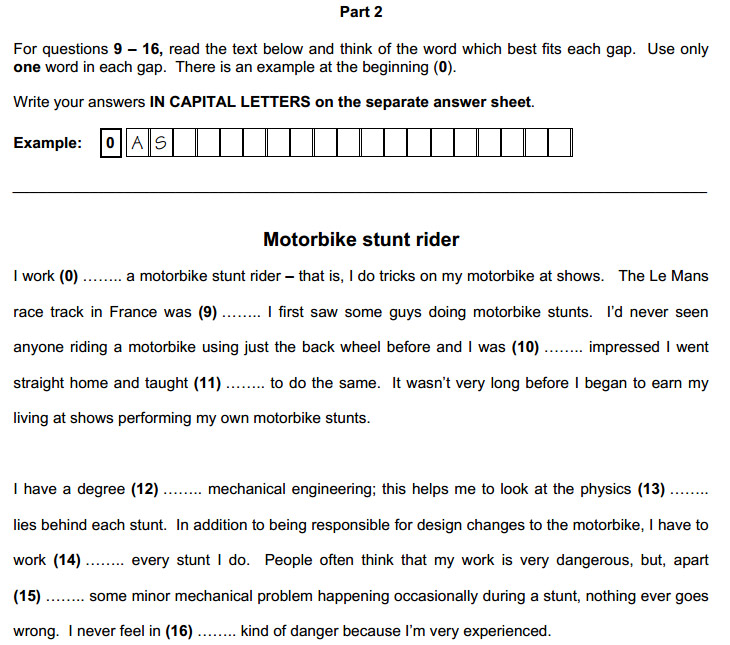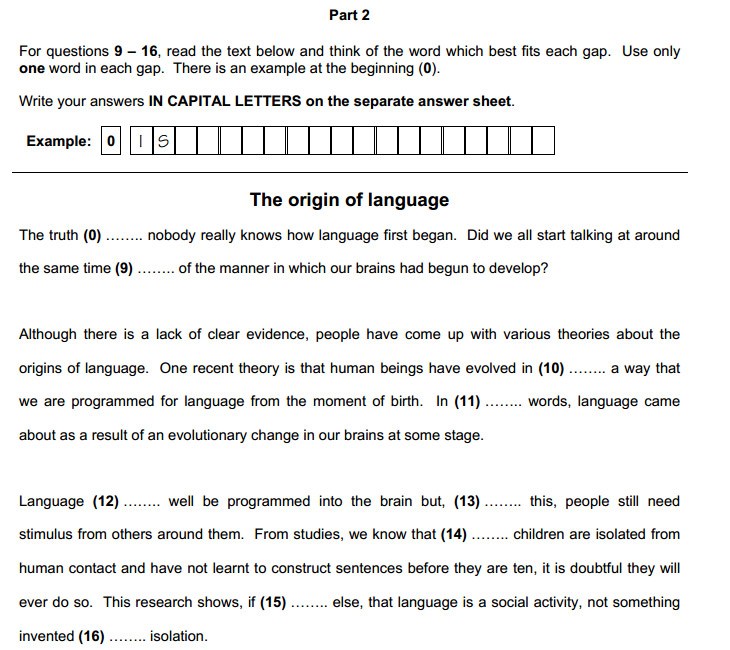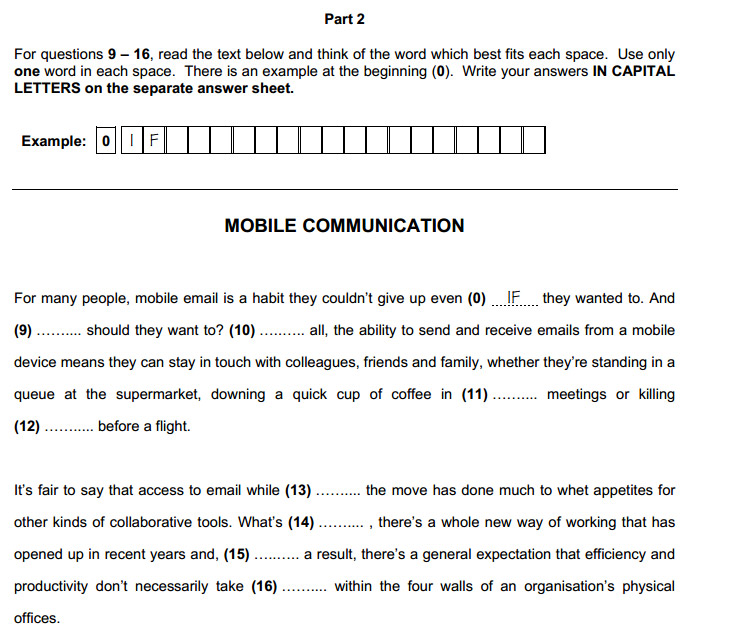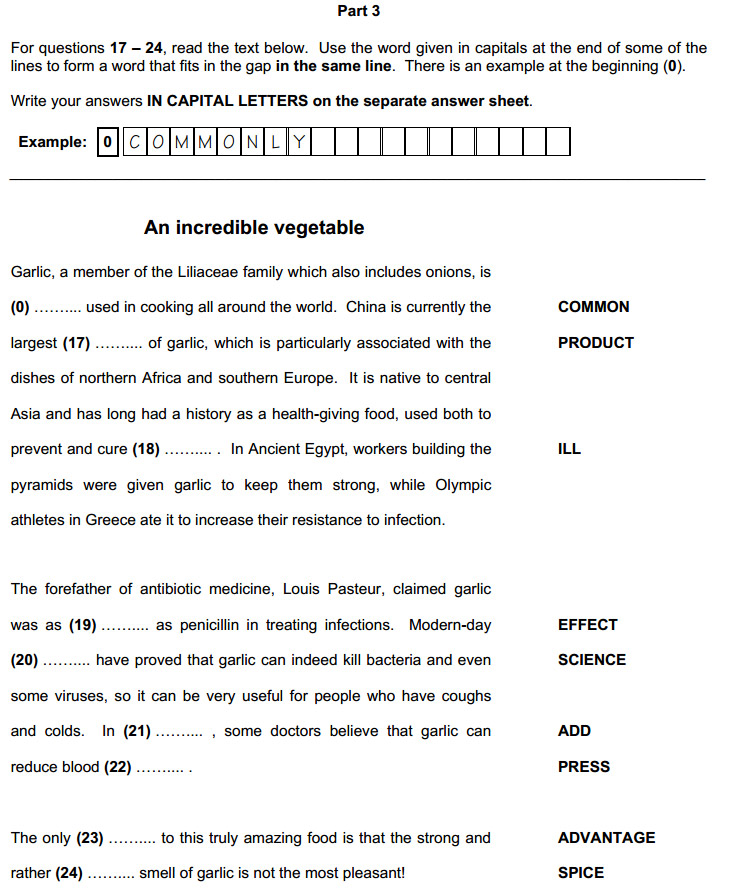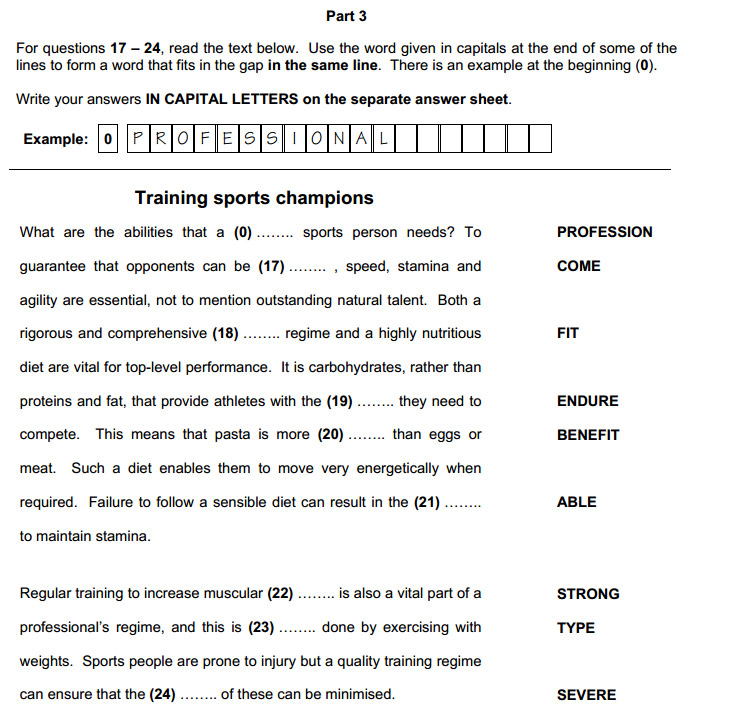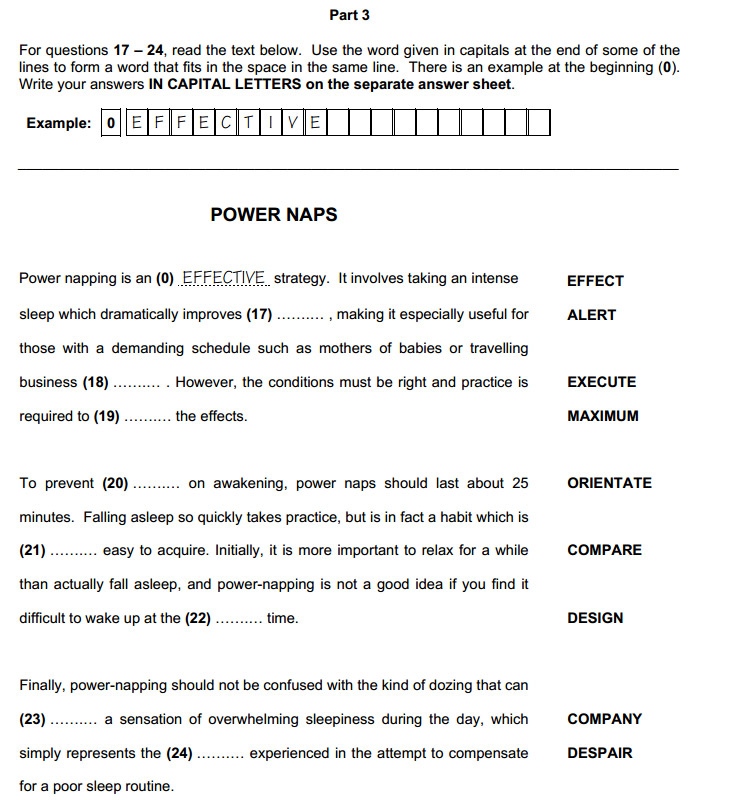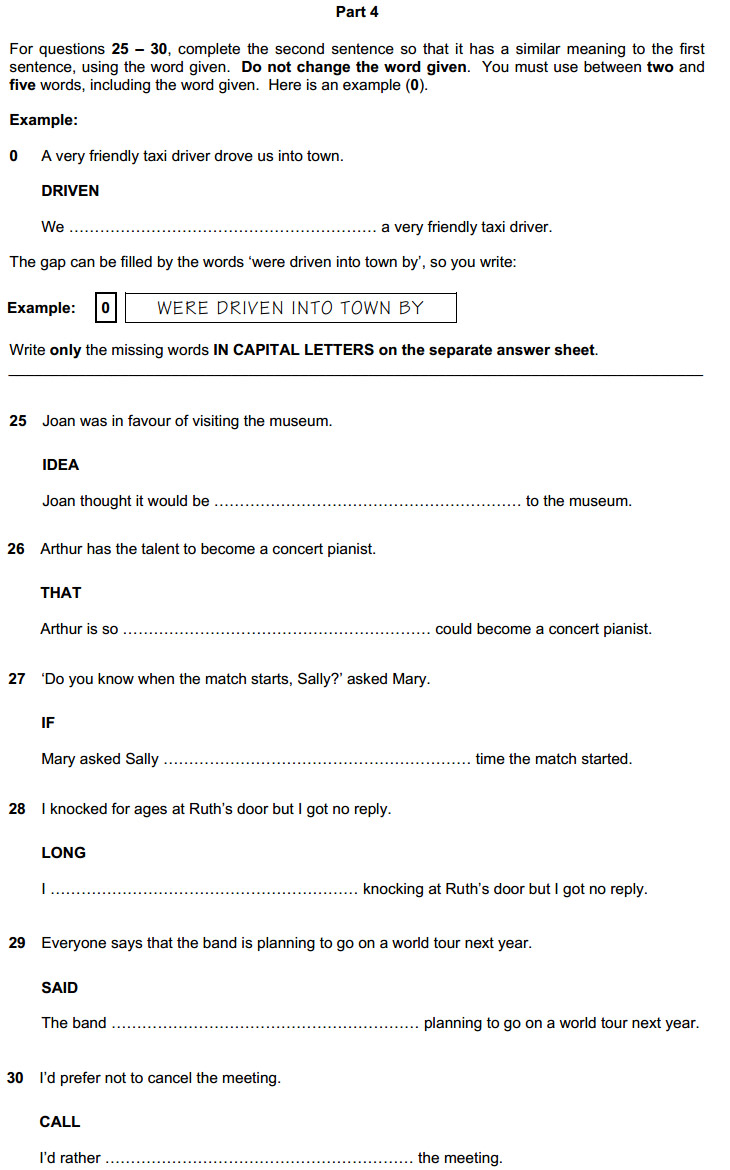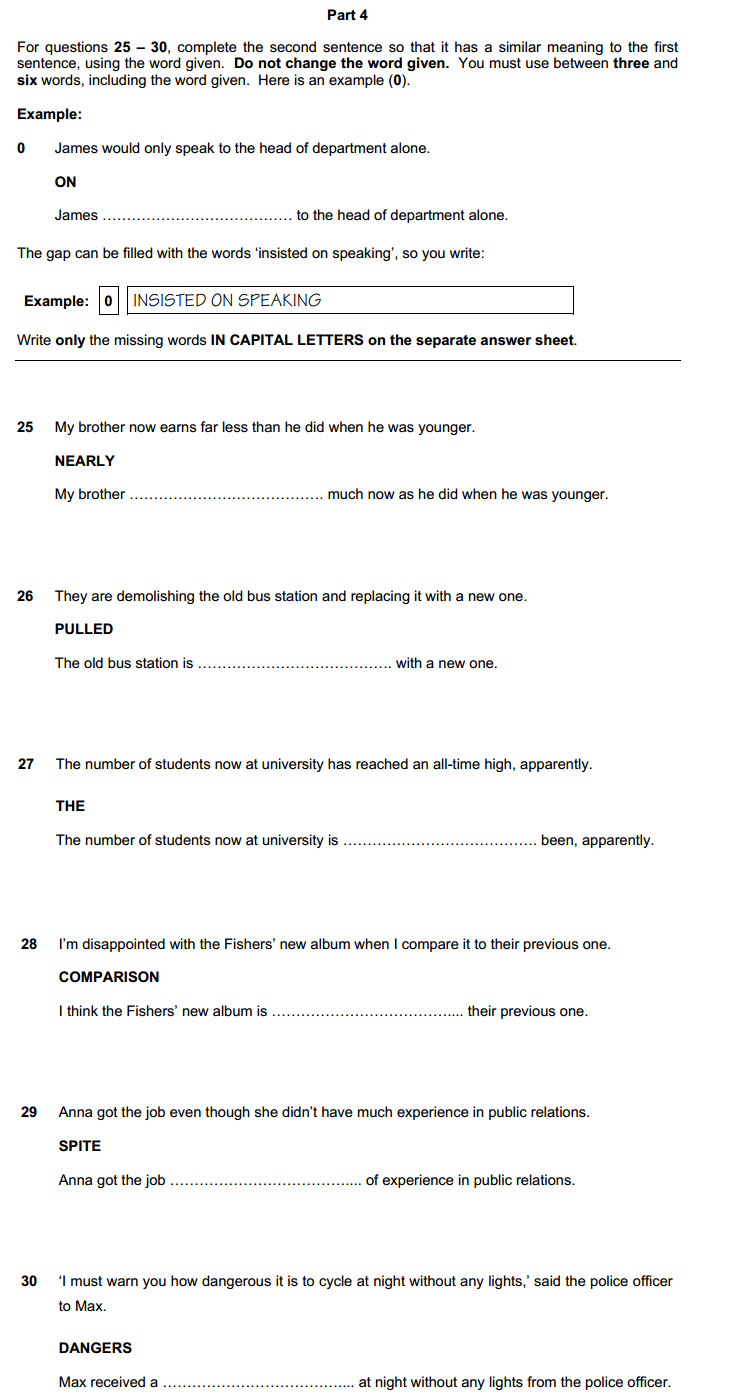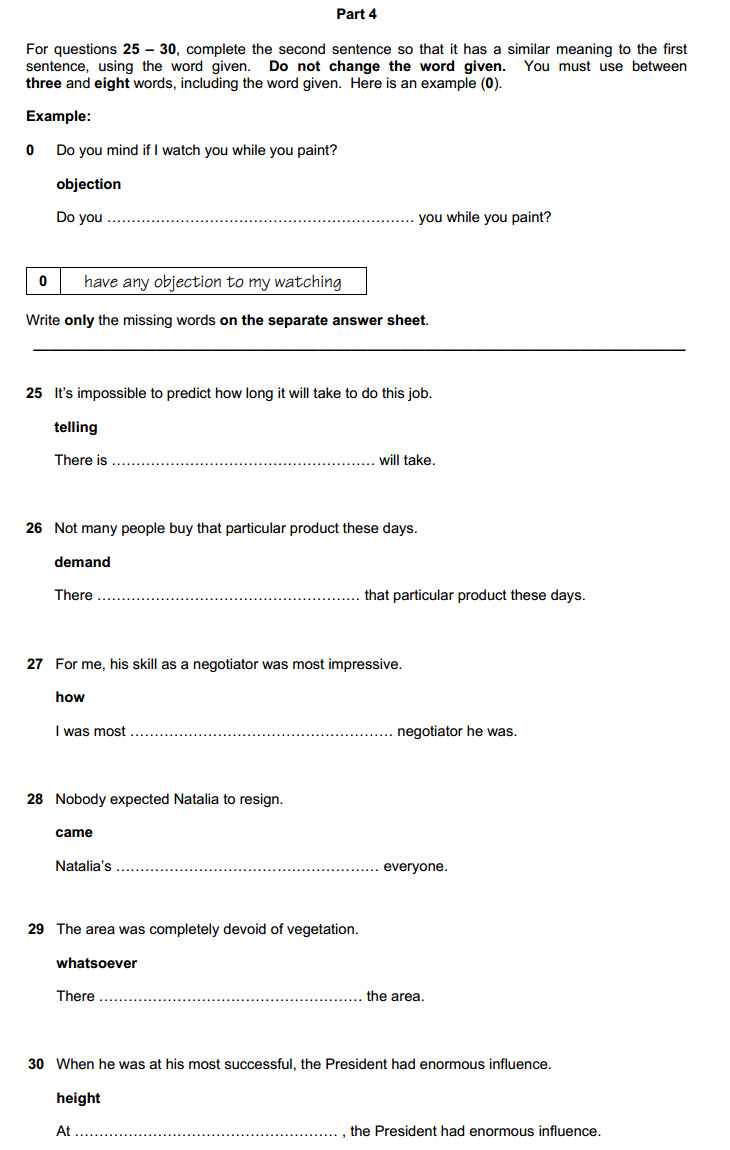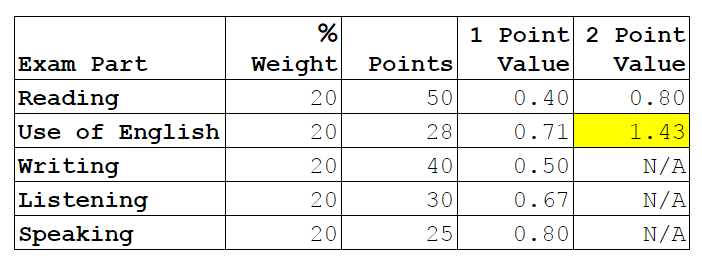Если вы когда-нибудь готовились к олимпиадам и международным экзаменам, вам наверняка встречалось задание Key Word Transformations. Не встречалось? Значит плохо готовились. При хорошей подготовке пройти мимо трансформаций невозможно.
В этой статье мы подробно разберём, что такое перефразирование, из чего оно состоит и как к нему готовиться. Если вам нужна не теория, а практика, перейдите на страницу Key Word Transformations — упражнения.
Где могут встретиться key word transformations?
Key word transformations всегда присутствуют на международных экзаменах FCE, CAE, CPE и периодически попадаются на олимпиадах. Например, на Всероссийской олимпиаде школьников это задание встречалось на школьных этапах в 2012/13 и 2016/17 годах, на муниципальных — в 2013/14 и 2016/17, на региональных — 2015/16 и 2016/17. Олимпиады «Высшая проба» и «Ломоносов» также давали задания на трансформации в финальных турах.
Что такое key word transformations?
Задание на перефразирование выглядит примерно так:
I regret ever telling her about my plans.
WISH
I ____________________ her about my plans.
Как мы видим, в задании есть три элемента:
- предложение;
- слово;
- предложение с пропуском.
Наша задача — дописать предложение с пропуском таким образом, чтобы оно не отличалось от первого по смыслу, и чтобы в нём присутствовало данное нам слово (именно оно называется key word).
Для приведенного примера ответ может быть таким: wish I had not told. Мы использовали в ответе данное нам слово WISH и получили предложение, аналогичное исходному по смыслу: I regret ever telling her about my plans. = I wish I had not told her about my plans.
В задании всегда обозначено, сколько слов нужно дописать. Например, на FCE это, как правило, 2–5 слов, на CPE — 3–8, на региональном этапе ВОШ в 2017 году указывалось точное количество слов в каждом отдельном предложении. Обязательно внимательно читайте задание! Если слов нужно 2–5, а вы напишете 6, то балл снимут, даже если перефразированное предложение будет правильным.
Key word менять нельзя. Например, если написано WISH, нельзя переделывать его на WISHES или WISHED. Если дано NO, нельзя вместо него использовать NOT.
Проверяйте, нет ли в вашем ответе лишних слов. Например, в приведенном примере слово her уже присутствует в предложении с пропуском. Если вы укажете в качестве ответа фразу wish I had not told her вместо wish I had not told, вы потеряете балл.
Какие бывают трансформации?
Все трансформации можно условно разделить на два типа: грамматические и лексические. В задания обычно включают и те, и другие. Однако грамматические трансформации проще лексических, поэтому чем выше уровень экзамена или олимпиады, тем больше встречается лексических трансформаций и тем меньше грамматических.
Сложность лексических трансформаций объясняется их разнообразием. Они не поддаются классификации, и единственный надежный путь их освоить — расширять словарный запас всеми доступными способами, делая особый акцент на устойчивых словосочетаниях и фразовых глаголах.
Примеры лексических трансформаций:
The manager had the respect of everyone in the office.
UP
Everyone in the office _______________________ the manager.
Ответ: looked up to
You must do exactly what your manager tells you.
CARRY
You must _______________________ instructions exactly.
Ответ: carry out the manager’s
He really wanted to impress the interviewers.
DESPERATE
He _______________________ the interviewers a good impression.
Ответ: was desperate to give
I just can’t decide where to go on holiday.
MIND
I just can’t _______________________ where to go on holiday.
Ответ: make up my mind
Грамматические перефразирования менее разнообразны, и можно очертить круг тем, на базе которых они обычно создаются. Например, часто встречаются такие темы:
Passive and Active Voice
Преобразование из активного залога в пассивный и наоборот.
Claire was not allowed to stay out late when she lived at home with her parents.
LET
Claire’s parents _______________________ stay out late when she lived at home.
Ответ: did not let her
Conditionals
В этой категории очень популярны предложения со словами wish и in case.
I wished I’d done more to help.
HAVING
I regretted _______________________ more to help.
Ответ: having not done
Изменение одного времени на другое
Часто проверяется умение использовать грамматику со словами no sooner, first time, last и им подобными.
Sally hasn’t contacted us for over six weeks.
HEARD
We _______________________ over six weeks ago.
Ответ: last heard from her
Modals
Модальные глаголы и модальные эквиваленты часто встречаются в трансформациях.
Can you do the shopping tomorrow?
ABLE
Will _______________________ the shopping tomorrow?
Ответ: you be able to do
Linking words
Излюбленные слова в этой категории — despite, in spite of, although, until.
We played tennis despite the cold weather.
EVEN
We played tennis _______________________ cold.
Ответ: even though the weather was
Reported Speech
Как правило, требуется превратить прямую речь в письменную.
‘I’m sorry I’m late,’ he said.
APOLOGIZED
He _______________________ late.
Ответ: apologized for being
So and Such
It was such a stale cake that nobody wanted to eat it.
SO
The cake _______________________ that nobody wanted to eat it.
Ответ: was so stale
Rather and Prefer
I’d prefer him to be back before 11 o’clock.
RATHER
I _______________________ back before 11 o’clock.
Ответ: ‘d rather he was
Comparisons
She needs less sleep than I do.
MORE
I need _______________________ she does.
Ответ: more sleep than
Разумеется, этими группами дело не ограничивается. Key word transformations могут быть на любую грамматику. Но шанс встретить что-нибудь именно из вышеперечисленных тем очень высок.
Как проверяют transformations?
Часто бывает так, что предложение можно перефразировать разными способами. Например:
Claire’s parents DID NOT LET HER stay out late when she lived at home.
Вариант did not let her не является единственным. Наряду с ним возможны didn’t let her, refused to let her, wouldn’t let her и некоторые другие. В ключах, по которым проверяются работы, все эти варианты указаны, и если ваш ответ совпадает с одним из них, он считается правильным.
Обычно за каждое перефразированное предложение дают два балла, если оно перефразировано абсолютно правильно, и один балл, если оно перефразировано правильно наполовину. В примере выше можно заработать два балла, написав did not let her, и один балл, написав, например, will not let her (will not будет считаться неправильным, а let her — правильным). Конечно, возможность получить 0 баллов, написав неправильно обе части, тоже всегда есть.
Как тренироваться?
Если вы хотите безошибочно делать key word transformations, отрабатывайте и повторяйте грамматику, расширяйте словарный запас и обязательно делайте упражнения в формате transformations, чтобы набить руку и не делать досадных ошибок (дописали лишнее слово, изменили key word и прочее).
В этой статье мы разберем структуру заданий одной из самых значимых частей кембриджских экзаменов Use of English (использование английского — грамматика и лексика) и поделимся советами по их успешному выполнению.
В блоге уже выходили статьи о том, как сдать Writing (письменную часть), Reading (чтение) и Listening (аудирование) на экзаменах FCE, CAE, CPE — советуем ознакомиться с этими материалами. Теперь перейдем к тому, как подготовиться к части Use of English экзаменов FCE, CAE, СPE.
Типы заданий в части Use of English
Раздел Use of English экзаменов FCE, CAE и CPE объединен с разделом Reading. На выполнение всей части Reading and Use of English вам дадут 1 час 15 минут на экзамене FCE и 1 час 30 минут на CAE и CPE. За это время вам надо выполнить порядка 7-8 заданий. Первые 4 задания относятся к части Use of English, которая проверяет ваш словарный запас и знание грамматики, а остальные — к части Reading.
Давайте посмотрим, из каких заданий состоит Use of English на кембриджских экзаменах:
| Экзамен | Multiple choice cloze | Open cloze | Word formation | Key word transformations |
|---|---|---|---|---|
| FCE, CAE, CPE | Part 1 8 предложений по 1 баллу |
Part 2 8 предложений по 1 баллу |
Part 3 8 предложений по 1 баллу |
Part 4 4-6 предложений по 2 балла |
Экзамены совпадают по структуре, баллам и количеству заданий, но отличаются по степени сложности. Разберем примеры заданий Кембриджских экзаменов с официального сайта: FCE, CAE и CPE.
Part 1: Multiple-choice cloze (выбрать правильный ответ из нескольких предложенных)
Суть задания: Вам нужно заполнить пропуски в тексте, выбрав одно из предложенных четырех слов. Всего пропущено 8 слов. В этом задании проверяется словарный запас (vocabulary) — знание фразовых глаголов, устойчивых выражений, идиом, оттенков значений и т. п.
Техника выполнения: Чтобы получить общее представление о тексте, прочитайте его, не обращая внимания на пропущенные слова. Далее внимательно читайте каждое предложение и варианты ответа. Исключите варианты, которые явно не подходят, затем из оставшихся выберите тот, который логически дополнит предложение и будет сочетаться с рядом стоящими словами. Рассмотрим пример:
They couldn’t (1)… a decision and agreed to meet again after lunch.
a) arrive
b) achieve
c) reach
d) attain
Хорошо зная устойчивые словосочетания, вы выберите вариант reach.
I like to go to the beach (2)… my wife likes to stay in and watch a TV show.
a) then
b) where
c) when
d) whereas
Однозначно не подходят варианты then (в примере указаны не последовательные действия, а параллельные) и where (нелогично, она в номере смотрит шоу, а не на пляже). Выбирая между when и whereas, следует предпочесть «в то время как», в значении противопоставления, а не просто «когда». Правильный ответ — whereas.
Пример задания multiple choice cloze на экзамене FCE
Пример задания multiple choice cloze на экзамене CAE
Пример задания multiple choice cloze на экзамене CPE
Part 2: Open cloze (вставить слово в предложение без вариантов ответа)
Суть задания: Нужно вновь заполнить пропуски в тексте словами, подходящими по смыслу. Пропущено 8 слов, но в этот раз вам не предлагают никаких вариантов.
Техника выполнения: Прочтите текст, не обращая внимания на пропущенные слова. Затем прочитайте внимательно каждое предложение. Обратите внимание, какие слова стоят до и после пропущенного слова. Они подскажут вам, к какой части речи относится это слово, число или время, в котором оно должно стоять. Например:
I really (1)… like this picture! It’s a masterpiece.
Очевидно, что предложение вполне самодостаточное и без вставки. Вместе с тем вы можете увидеть, что перед вами эмоциональное высказывание. Значит, правильно будет вспомнить про вспомогательный глагол do в функции усиления — I really do like this picture! It’s a masterpiece.
The concert has been cancelled (2)… to the epidemic situation in the city.
В первой части предложения — следствие, а во второй — причина. Мы не можем вставить because, так как после него употребляется предлог of, a не to. Необходимо рассмотреть другие варианты, близкие по значению к «потому что» и «из-за». Отлично подойдут owing и due. Иногда могут подходить сразу два варианта ответа, каждый из них будет правильным, но вам все равно нужно вписать один.
Пример задания open cloze на экзамене FCE
Пример задания open cloze на экзамене CAE
Пример задания open cloze на экзамене CPE
Part 3: Word formation (словообразование)
Суть задания: Вам нужно заполнить пропуски в тексте, образуя однокоренные слова от предложенных. Это задание проверяет насколько грамотно вы используете словарный запас.
Техника выполнения: Следует прочитать текст несколько раз — сначала бегло, а затем вдумчиво, обращая внимание на key words и слова, которые идут до и после него. Это поможет вам правильно определить часть речи производного слова. Большинство слов изменяются с помощью приставок, суффиксов и окончаний, например: courage – discourage, circle – circular, health – unhealthy, employ – unemployed. Переведите предложение, чтобы убедиться в правильности выбранной части речи.
Самые распространенные ошибки при выполнении этого задания:
- Путаница в отрицательных и положительных характеристиках
Don’t be so …, I’ll finish the task in a minute. (patience)
Если не обратить внимание на отрицание (don’t be) и использовать прилагательное patient (производное от patience), то это будет ошибкой. Правильный ответ — impatient.
Чтобы избежать ошибки, внимательно читайте весь текст и следите за логикой предложения.
- Неправильная часть речи
My boyfriend is not very … about the idea of going to New York. (enthusiasm)
Правильный ответ — прилагательное enthusiastic. Если использовать вместо него наречие enthusiastically, это будет ошибкой. Выбор наречия вместо прилагательного и наоборот — распространенная ошибка.
- Ошибки в выборе единственного или множественного числа
Tina’s husband is one of the strongest … in her business. (support)
Правильный ответ — supporters. Единственное число — supporter — будет ошибкой. Сбить может тот факт, что мы говорим об одном человеке, но ведь в предложении есть конструкция one of (один из).
- Орфографические ошибки
Чтобы избежать орфографических ошибок, необходимо регулярно практиковать правописание и не лениться проверять слова в словаре.
Пример задания word formation на экзамене FCE
Пример задания word formation на экзамене CAE
Пример задания word formation на экзамене CPE
Part 4: Key word transformations (перефразирование предложения с использованием ключевого слова)
Суть задания: Вам даны предложение и ключевое слово/словосочетание. Необходимо преобразовать предложение таким образом, чтобы в него вошло данное ключевое слово/словосочетание, учитывая ограничения по количеству слов, указанных в задании. Полученное предложение не должно отличаться по смыслу от исходного.
Техника выполнения: Прочитайте исходное предложение и вспомните все устойчивые выражения и фразы с указанным key word. Затем прочитайте второе предложение с пропуском. При трансформации предложения вы не должны выходить за рамки указанного количества слов в задании (с учетом key word). Конечно, нельзя изменять key word. Например, если дано wish, не стоит использовать wishes или wishing. Если дано not, нельзя вместо него использовать no. Также проверяйте, нет ли в вашем ответе лишних слов. Разберем пример:
I regret ever telling her about my private life. (wish)
I ____________________ her about my private life.
Правильный ответ — I wish I had not told her about my private life.
В приведенном примере местоимение her уже есть в предложении с пропуском. Если напишете wish I had not told her вместо wish I had not told, это будет ошибкой. За каждое верно перефразированное предложение вы получаете два балла, и один балл, если вы допустили небольшую ошибку.
Пример задания key word transformations на экзамене FCE
Пример задания key word transformations на экзамене CAE
Пример задания key word transformations на экзамене CPE
Хотите получить международный сертификат? Записывайтесь на курс подготовки к экзаменам.
Как успешно сдать Use of English — 7 советов
- При подготовке много читайте. Желательно, чтобы тексты были различной тематики. Отдавайте предпочтение газетным и научным статьям. Выбирайте серьезные издания, например, The Washington Post или The Guardian. Читая тексты, выписывайте и учите новую для вас лексику, также изучайте и повторяйте готовые подборки устойчивых выражений и идиом. Например, их можно найти в учебной серии Oxford Word Skills Intermediate и Advanced.
- Относитесь к грамматике как к инструменту, который на экзамене поможет вам точно выразить свои мысли. Разбирайте грамматические правила и отрабатывайте их.
- Выполняйте пробные тесты и тренируйтесь распределять время на каждый тип заданий. Обратите внимание, что необходимо брать тестовые задания, изданные не ранее 2015 года, потому что в этом году произошли изменения в формате кембриджских экзаменов.
- Не зацикливайтесь на одном задании. Если вы сомневаетесь, напишите возможные варианты ответа на полях и продолжайте выполнять тест. К пунктам, в которых вы не уверены, вернитесь позже.
- Проверяйте свои ответы каждый раз, как выполнили задание.
- Пользуйтесь подходящими ресурсами:
- Cambridge English Exam Booster — пособие содержит 48 экзаменационных заданий. В книге рассмотрены типичные ошибки и даны рекомендации для успешной сдачи экзамена.
- Cambridge English First 2, Cambridge English Advanced 2 и Cambridge English Proficiency 2 — каждая книга содержит 4 теста для каждого из экзаменов. Пособия ознакомят вас с содержанием и форматом экзаменов FCE, CAE и CPE.
- Cambridge English Teacher Rory — советы по подготовке к FCE и CAE от преподавателя и носителя языка Рори.
- Floe-Joe — тренировочные упражнения в формате экзаменов FCE, CAE, CPE.
- Рекомендуем найти преподавателя, который сам получил международный сертификат и у которого есть опыт подготовки студентов к экзамену. Такой учитель не только проработает с вами типовые задания, но и расскажет о методике сдачи экзамена исходя из своего опыта. Он поможет вам правильно организовать подготовку, структурировать информацию, поделится психологическими приемами. Если вы в поиске такого учителя, обратитесь в нашу школу, и менеджеры подберут преподавателя, который поможет вам сдать экзамен на высокий балл.
Желаем успехов в сдаче экзаменов!
© 2023 englex.ru, копирование материалов возможно только при указании прямой активной ссылки на первоисточник.
-
Task Type: Key Word Transformations
-
Focus: Lexical and grammatical
-
-
Format: Six separate items, each with a lead-in sentence and a gapped second
sentence to be completed in two to five words, one of which is a given
‘key word’
-
-
Number of questions: 6
-
How many marks are there: Up to two marks for each correct answer
What is testing:
- modal verbs and semi-modal verbы
- phrasal verbs
- verb patterns
- direct speach to reported speach
- active voice to passive voice
- linking words/do and make/idioms/conditionals/unreal past
General Advice
- Write between two and five words as your answer
- Contractions like can’t or mustn’t are counted as two words
- Take a guess if necessary! You will not loose marks
- Remember that you cannot change the key word
cambridge english first certificate (fce) test
Key Word Transformations
- FCE : Key Word Transformations 1
- FCE : Key Word Transformations 2
- FCE : Key Word Transformations 3
- FCE : Key Word Transformations 4
- FCE : Key Word Transformations 5
- FCE : Key Word Transformations 6
- FCE : Key Word Transformations 7
- FCE : Key Word Transformations 8
- FCE : Key Word Transformations 9
- FCE : Key Word Transformations 10
- FCE : Key Word Transformations 11
- FCE : Key Word Transformations 12
- FCE : Key Word Transformations 13
- FCE : Key Word Transformations 14
- FCE : Key Word Transformations 15
- FCE : Key Word Transformations 16
- FCE : Key Word Transformations 17
- FCE : Key Word Transformations 18
- FCE : Key Word Transformations 19
- FCE : Key Word Transformations 20
Key word transformations – вид упражнений, направленных на проверку умения употреблять структуры и фразы с определённым заданным содержанием. Проверяется это умение на уровне предложения, так что умение строить предложение с тем же смыслом затрагивает не только форму слова, но всё разнообразие структур с данным словом. Обычно в условии указывается количество слов, которые нужно употребить (не более пяти, от трёх до шести). Кроме лексических структур в key word transformations участвуют также глагольные словосочетания.
Например, возьмём слово like и его эквивалент to be keen on.
My parents like classical music.
Для трансформации можно оставить предлог или, делая задание слишком очевидным, прилагательное keen. Получим:
My parents like classical music.
on
My parents are keen on classical music.
Иногда часть предложения для трансформации может быть изменена, что подразумевает употребление антонимов, как, например:
- It is quite difficult to stop smoking.
GIVE
It’s not very_________ smoking.
It’s not very easy to give up smoking.
Попробуйте свои силы на следующем небольшом упражнении, затем проверьте себя по ключу:
- I’m afraid I’ve forgotten your name.
REMEMBER
I’m sorry, but I_________ your name is. - I have never read a book by Salman Rushdie before this one.
TIME
This is the _______ a book by Salman Rushdie. - I was very disappointed that I couldn’t see the famous waterfalls.
ME
It was a____ that I couldn’t see the famous waterfalls. - Since my earliest memories, I have been interested in fashion.
CAN
For as long__ I have been interested in fashion. - I finished revising for this test a few minutes ago.
JUST
I’ve_____ for this test.
Keys:
- I’m sorry but I don’t remember what your name is.
- This is the first time I’ve read a book by Salman Rushdie.
- It was a disappointment for me that I couldn’t see the famous waterfalls.
- For as long as I can remember I have been interested in fashion.
- I’ve just revised for this test.
Очевидно, что при выполнении подобных упражнений нужно прежде всего вчитаться в исходное предложение, понять его смысл. Затем вспомнить все возможные структуры с данным словом, употребив ту из них, которая ближе всего по смыслу к исходному предложению.
About Author
Татьяна
It does not matter how slowly you go as long as you do not stop.
Procedure:
Part I. Presentation — the theory of Key Word Transformation and instructions
Step 1. Students read and analyze the lead-in sentence.
Step 2. Students examine the key word. Remember that it must not be transformed.
Step 3. Students define what kind of transformation will be suitable in the sentence.
Step 4. Students write a new construction.
Step 5. Students read the net sentence to check if it makes sense.
Step 6. Students write the answer in the exam paper. Remember that the only transformed words must be written as an answer.
Part II. Practice
Exercise 1.
1. Unless you leave now, you’ll miss the train.
IF
You’ll miss the train _____________ now.
2. Give me your address, as I might visit Barcelona.
CASE
Give me your address _____________ visit Barcelona.
3. I always watch the late-night news on TV.
NEVER
I _______________ the late-night news on TV.
4. George didn’t get much sleep last night as usual.
HARDLY
Last night George _______________ as usual.
5. His parents were travelling in the desert so they couldn’t follow the news.
KEEP
His parents were travelling in the desert so they weren’t ________ the news.
Exercise 2.
1. Adam can’t wait to go snowboarding next week.
FORWARD
Adam-s really ____________ snowboarding next week.
2. What’s your uncle’s job?
FOR
What _______________ a living?
3. I’m sure Rafael Nadal earned a lot of for that car advertisement.
BEEN
Rafael Nadal ________ a lot for that car advertisement.
4. The candidate couldn’t register for the election because he missed the deadline.
ABLE
If the candidate hadn’t missed the deadline, he _______________ register for the election.
5. I was really impressed by the images in the advert.
MADE
The images in the advert really __________ me.
Part III. Product
A teacher asks students to compose their own tasks on the topic themselves.
Cambridge Advanced C1 key word transformations are arguably the most troublesome part of the exam. Even if you’ve been studying English for decades, you can come across some difficult questions in Advanced Use of English part 4. That’s because it’s not just about producing language at the level, it’s about producing exactly the language which Cambridge have decided to test for that question. While you may be a wiz at grammar and vocabulary exercise when you know what is being tested, with key word transformations, you have to first identify what type of grammar or vocabulary you need for each question.
The step-by-step process featured in this post is part of our premium materials: 230 C1 Key Word Transformations for the Cambridge Advanced exam. You can pick up a digital key word transformation exercises pdf or paperback copy on Amazon to put all these tips and tricks into practice.
GET 230 C1 ADVANCED (CAE) KEY WORD TRANSFORMATIONS
Why are C1 key word transformations so important for the exam?
Each question for this part of the exam is worth 2 points, which is double the value of the other Use of English parts. On top of that, because of the weighting of each section of the Cambridge C1 Advanced exam, each question in Use of English is worth a greater overall proportion of your final mark.
Don’t forget that of the Reading and Use of English paper, only parts 2, 3 and 4 are considered Use of English. Part 1, despite feeling like a Use of English activity, is counted towards your Reading result.
To understand the value of each question relative to your final weighted result, we’ve made this simple table. As you can see here, Each 2-point Use of English question (KWTs) is worth almost twice as much as questions in the Reading or Listening papers.
So what does this mean in practice? It means you should make sure you know what you’re doing for this part of the exam. Be extra careful with CAE transformations. One minor mistake with a preposition, article, plural, gerund or other detail can cost you a point. And you should always try to answer, even if you’re not sure, because you can get 1 point for a partially correct question.
If you’re taking the exam, you’ll need to know how to do key word transformations, and if you’re preparing students for the exam, you’ll need to know how to teach C1 key word transformations. Either way, there’s a step-by-step process, detailed below, that can help to ensure you are methodical in this part of the exam.
Work through the step-by-step process and then put it into practice with real exam tasks. Use official C1 Advanced materials or resources like Breakout English’s book of 230 C1 key word transformations.
Download the worksheet
Advanced (CAE) – How to do key word transformations
Step-by-step process
Understanding the instructions
Every C1 key word transformations exercise includes exactly the same set of instructions. Look at the instructions and decide whether the following statements are true or false.
Complete the second sentence so that it has a similar meaning to the first sentence, using the word given. Do not change the word given. You must use between three and six words, including the word given.
- The 1st sentence and the 2nd sentence always use the same grammar.
- Your final answer will have the same meaning as the original sentence.
- The key word must be used in your answer.
- You can change the key word (e.g. to make it plural, to change the tense).
- An answer with five words is possible.
Answering the question
Step 1 – Identifying similar content
In order to identify what we need to transform, first we need to identify what content from the 1st sentence has already been included in the 2nd sentence.
Look at the sample question and underline or highlight the content in the 1st sentence that is already included in the 2nd sentence.
Step 2 – Identifying content to be transformed
Now we know what we don’t need to change, circle or highlight the content in the 1st sentence that we are going to be transforming with the key word.
These steps help us focus our attention and not spend too much time on each question. It is easy to have a mental block with C1 key word transformations, so let’s try to avoid that by concentrating only on the essential information.
Step 3 – Considering the language
Using the key word to help, think about the content that is missing and try to identify which language point or whether multiple language points are being tested. At C1 Advanced level, there is often more than one language point that is used to transform the sentences.
Look at this list of language points. Which one(s) are being tested in the example question?
- participle clauses
- fixed expressions
- past tenses
- cleft sentences
- linking words and phrases
- modal verbs
Step 4 – Answering the question
Now we are ready to answer the question. Complete the 2nd sentence with a similar meaning to the 1st sentence using between three and six words.
Step 5 – Checking your answer
Before we finish, it’s essential to check your answer and look carefully at the details. It’s easy to make a simple mistake and lose a point or two when it could have been avoided easily.
Use this checklist to check your answer to the example question.
- The number of words is correct (between 3 and 6).
- The key word has been used in its original form.
- The meaning of the 2nd sentence is sufficiently similar to the 1st.
- The tenses in the 2nd sentence correspond to the 1st.
- The subjects in the 2nd sentence correspond to the 1st.
- Any pluralisation of nouns is correct.
- Any necessary prepositions have been included and used accurately.
- Any necessary determiners have been included and used accurately.
- Any verb patterns have been constructed correctly.
- Spelling is correct.
Use this checklist with every C1 key word transformations question you complete. It may seem like a lot at first, but with time, it will become second nature.
Answers
Understanding the instructions
1 F 2 T 3 T 4 F 5 T
Answering the question
Step 1 – Identifying similar content
Step 2 – Identifying content to be transformed
Step 3 – Considering the language
Step 4 – Answering the question
by Adam Skimins 7th March 2022
- Article navigation:
- 40 Key Word Transformation: Exercises
- C1 Advanced (CAE) Use of English Part 4: Tips & Strategy
The important thing in key word transformations is that you keep the meaning the same – EXACTLY the same. So it’s important that you read through the first sentence and your second sentence to ensure you have kept the meaning the same.
Look at the key word. What type of word is it? What usually follows it, e.g. an infinitive, a preposition, or could it be part of a phrasal verb?
- Think about the other words that need to change in the new word order, e.g. an adjective may become a noun or vice versa.
- Your answer may include words or expressions not used in the first sentence, but these must express exactly the same idea.
- Remember that contracted words count as two words, e.g. won’t = will not.
Because of the scoring system, it’s possible to get 50% in this section without getting any of the questions 100% correct. So it’s worth answering every question! Even incomplete answers can get points
post sponsored by: Zintego
40 Key Word Transformation: Exercises
Complete the sentence so that it has a similar meaning. Do not change the word given. You must use between two and six words, including the word given.
Brian was really interested in North American history in his school days.
Brian had an interest in (INTEREST) North American history in his school days.
Darius soon recovered after the operation on his knee and was able to rejoin the team.
After the operation on his knee, Darius (MADE) and was able to rejoin the team.
made a fast recovery
You must include the word given (MADE)You must use beetwen 3 and 6 words.
I always hated pasta when I was a child but now I cook it regularly.
I (USE) pasta when I was a child but now I cook it regularly.
didn’t use to likedid not use to like
You must include the word given (USE)You must use beetwen 3 and 6 words.
It was a mistake not to write the telephone number down.
I should (POINT) writing down the telephone number.
have made a point of
You must include the word given (POINT)You must use beetwen 3 and 6 words.
If Marc hadn´t taken up politics, he might have become a famous art historian.
If Marc hadn’t taken up politics, he might have (NAME) himself as an art historian.
made a name for
You must include the word given (NAME)You must use beetwen 3 and 6 words.
This holiday is withing our price range, provided we don’t go to the expensive restaurants in the tourist centre.
We (AFFORD) as we avoid the expensive restaurants in the tourist centre.
can afford this holiday as long
You must include the word given (AFFORD)You must use beetwen 3 and 6 words.
Yesterday I informed my boss in writing that I would be leaving the company.
I (NOTICE) to my boss yesterday.
handed in my notice
You must include the word given (NOTICE)You must use beetwen 3 and 6 words.
Complete the sentence so that it has a similar meaning. Do not change the word given. You must use between two and six words, including the word given.
Brian was really interested in North American history in his school days.
Brian had an interest in (INTEREST) North American history in his school days.
It’s very unlikely that martin will win the 100 metres, as he’s out of training.
Martin has almost (CHANCE) the 100 metres, as he’s out of training.
no chance of winning
You must include the word given (CHANCE)You must use beetwen 3 and 6 words.
Most of the children ignored what the teacher had told them.
Few of the children (NOTICE) what the teacher had told them.
took notice of
You must include the word given (NOTICE)You must use beetwen 3 and 6 words.
The company is unable to guarantee an allocated car-parking space to all employees.
The company’s employees shouldn´t (COUNT) allocated a car-parking space.
count on being
You must include the word given (COUNT)You must use beetwen 3 and 6 words.
He no longer thinks he can find a job before the end of the year.
He has given (HOPE) a job before the end of the year.
up hope of finding
You must include the word given (HOPE)You must use beetwen 3 and 6 words.
I’m sure Jemma is going to become a famous model one day.
I think it’s only (MATTER) Jemma becomes a famous model.
a matter of time before
You must include the word given (MATTER)You must use beetwen 3 and 6 words.
I think learning to use a typewriter is a waste of time.
I can´t (POINT) how to use a typewriter.
see the point in learningsee the point of learning
You must include the word given (POINT)You must use beetwen 3 and 6 words.
Complete the sentence so that it has a similar meaning. Do not change the word given. You must use between two and six words, including the word given.
Brian was really interested in North American history in his school days.
Brian had an interest in (INTEREST) North American history in his school days.
The company has a good reputation in the local area.
The company (HIGHLY) of in the local area.
is highly spoken
You must include the word given (HIGHLY)You must use beetwen 3 and 6 words.
Nadia’s friend arrived just as she was about to leave the restaurant.
Nadia was (POINT) the restaurant when her friend arrived.
on the point of leaving
You must include the word given (POINT)You must use beetwen 3 and 6 words.
I don’t expect the company to make a profit this year, given the economic climate.
Given the economic climate, (SURPRISED) the company made a profit this year.
i would be surprised if
You must include the word given (SURPRISED)You must use beetwen 3 and 6 words.
Barbara´s parents were certain that she would be a great tennis player.
Barbara’s parents were (DOUBT) that she would be a great tennis player.
in no doubt
You must include the word given (DOUBT)You must use beetwen 3 and 6 words.
My grandfather had completely forgotten that he phoned me last night.
My grandfather didn’t (RECOLLECTION) phoning me last night.
have any recollection of
You must include the word given (RECOLLECTION)You must use beetwen 3 and 6 words.
Pay claims must be submitted before the end of the month.
You have (PUT) your pay claims before the end of the month.
to put in
You must include the word given (PUT)You must use beetwen 3 and 6 words.
Complete the sentence so that it has a similar meaning. Do not change the word given. You must use between two and six words, including the word given.
Brian was really interested in North American history in his school days.
Brian had an interest in (INTEREST) North American history in his school days.
Given that he has no experience, will Glyn be able to do this job?
Will Glyn’s (AFFECT) ability to do this job?
lack of experience affect his
You must include the word given (AFFECT)You must use beetwen 3 and 6 words.
At no time did we think that Pedro might be planning to leave the country.
It (OCCURED) that Pedro might be planning to leave the country.
never occured to ushad never occured to us
You must include the word given (OCCURED)You must use beetwen 3 and 6 words.
I’m sure we went the wrong way at the last junction.
We must (TAKEN) at the junction.
have taken the wrong turninghave taken the wrong turn
You must include the word given (TAKEN)You must use beetwen 3 and 6 words.
We wanted to continue our mountain trek but the weather was too bad.
We (LIKE) on with our mountain trek but the weather was too bad.
would like to have carriedwould have liked to carry
You must include the word given (LIKE)You must use beetwen 3 and 6 words.
No changes will be made to this project.
This project will (AHEAD) to plan.
go ahead according
You must include the word given (AHEAD)You must use beetwen 3 and 6 words.
Simon really ought to make a decision about his future.
It’s high time Simon (MIND) about his future.
made up his mind
You must include the word given (MIND)You must use beetwen 3 and 6 words.
Complete the sentence so that it has a similar meaning. Do not change the word given. You must use between two and six words, including the word given.
Brian was really interested in North American history in his school days.
Brian had an interest in (INTEREST) North American history in his school days.
Phoebe was surprised to be offered a place on the course.
The offer of a place on the course (CAME) Phoebe.
came as a surprise to
You must include the word given (CAME)You must use beetwen 3 and 6 words.
I can´t deny that I was embarrassed to be given the award.
There’s (NO) embarrassment at being given the award.
no denying my
You must include the word given (NO)You must use beetwen 3 and 6 words.
I think Anita must have gone on a diet recently because she’s quite slim now.
It looks as (HAS) dieting because she’s quite slim now.
if anita has been
You must include the word given (HAS)You must use beetwen 3 and 6 words.
Delia said that she would no longer tolerate her colleagues being rude.
‘I am not willing (PUT) from my colleagues any longer, ‘ said Delia.
to put up with any rudeness
You must include the word given (PUT)You must use beetwen 3 and 6 words.
It’s difficult to know what my reaction would have been in that situation.
I’m not (HOW) in that situation.
sure how i would have reacted
You must include the word given (HOW)You must use beetwen 3 and 6 words.
Do you mind if I come over to see you later?
Do you (OBJECTION) coming over to see you later?
have any objection to me
You must include the word given (OBJECTION)You must use beetwen 3 and 6 words.
Would you pass C1 Advanced (CAE)?
Sign up, resolve the tests and see what results you get.
Sign up
C1 Advanced (CAE) Use of English Part 4: Tips & Strategy
C1 Advanced (CAE) Use of English: Part 4 question type here is called key word transformation.
You have to complete the second sentence, using the key word.
Strategy
- Read the sentence carefully and think about its exact meaning.
- Check your tenses – if the first sentence is in the past tense, the second should be, too!
- Contractions (e.g. haven’t) count as two words.
- Try to keep the same meaning – If the first sentence says ‘Tom said…’ then don’t write ‘He said…’ in the second sentence. (Write ‘Tom said’.)
- Write between two and six words, including the word given.
Tips
Find things that are the same in both sentences and delete them. That helps you to focus on what you actually need to be transforming.
Make absolutely sure that the two sentences mean the same thing. For example, if the sentence to transform has names in it, the answer will have to have them too.
Would you pass C1 Advanced (CAE)?
Sign up, resolve the tests and see what results you get.
Sign up
Image credit: Cambridge English
Follow me on twitter @RobbioDobbio
Before you use these materials why not check out or podcast for learners and teachers alike, it’s called 2Ts in a Pod, follow the link below to listen:
This is a list of 78 expressions from key word transformations in the CAE exam. The expressions are taken from the fantastic quizlet set that someone made. Have students study 10-15 of the expressions for homework and the use the quizlet set to test them in class; great for intensive preparation courses when you’re pressed for time. Download the handout below:
cae-key-word-transformation-expressions
Quizlet set – 82 key word transformations
Expressions
Study the expressions carefully, focus on the prepositions and patterns (gerund/infinitive etc.)
- Under NO CIRCUMSTANCES SHOULD YOU undo your seatbelt during take-off.
- A new manager HAS TAKEN OVER THE running of the finance department.
- THERE IS NO KNOWING what’s going to happen in the next few days.
- The burglar must HAVE GAINED ENTRY/ACCESS through the bathroom window.
- An ant IS CAPABLE OF carrying ten times its own body weight.
- The news that my favourite teacher was leaving CAME AS A DISAPPOINTMENT TO ME.
- Sometime I feel as if my children TAKE ME FOR GRANTED.
- I need TO GET MY PASSPORT RENEWED before our trip to Greece.
- I WAS WONDERING IF YOU WERE willing to donate some money to our cause.
- I SEE NO POINT IN asking Tina for help, she always refuses.
- Playing video games is JUST AS MUCH FUN AS playing sports.
- The defendant DENIED HAVING SEEN the woman before.
- Everyone’s opinions must BE TAKEN INTO ACCOUNT before a decision is made.
- It’s IN YOUR INTEREST to take good notes during class, you’ll need them for the final exam.
- I really need to GET that broken window REPAIRED.
- MUCH TO THEIR DELIGHT, Jon and Ana didn’t have to pay to get in.
- The cat REFUSED TO COME down from the tree.
- Georgina SAID SHE WOULD NOT WEAR the yellow dress her mother had chosen for her.
- Don’t FORGET TO KEEP IN TOUCH while you’re travelling.
- You need to be ON THE LOOKOUT FOR pickpockets in this area.
- Plans ARE BEING DRAWN UP for a new shopping centre on the outskirts of the city.
- MUCH TO OUR HORROR, when we got back to the hotel all our stuff had been stolen.
- Would YOU RATHER I HAD NOT told them about the party?
- LET ME KNOW if you can come to the party, I need to buy the food tonight.
- Andrés WAS AT A LOSS TO EXPLAIN why he was late for class again.
- Failure to show a valid ticket is LIKELY TO RESULT IN you having to pay a fine.
- It is HIGHLY LIKELY THAT THE FILM WILL win several awards.
- Quick ACTION ON THE PART OF the ambulance crew saved the little girl’s life.
- How can I GET IT ACROSS TO HIM that I’m just not that into him.
- Don’t be silly, there IS NO SUCH THING as vampires.
- I’m so sorry I’m late, I(COMPLETELY) LOST TRACK OF TIME!
- IN THE UNLIKELY EVENT that the plane lands on water, lifejackets are stored under your seats.
- Katy HAS BEEN MADE RESPONSIBLE FOR the sales department, she’s a bit nervous but very excited.
- Gerald has been PUT IN CHARGE OF finding a catering company for the Christmas party.
- I WAS TAKEN BY SURPRISE/ WAS TAKEN ABACK when they asked me to take over from Jon as finance manager.
- Bob is IN DANGER OF GETTING SACKED/FIRED if his bad behaviour continues.
- In the end they PLACED THE BLAME ON a group of local teenagers for the vandalism to the church.
- Sorry but I HAD THE IMPRESSION/WAS UNDER THE IMPRESSION that this was a permanent contract.
- I WAS LED TO BELIEVE that the salary would be €2000 a month.
- The runner who finished second told the press that she had NO INTENTION OF RETIRING and that she’d be back to compete next year.
- It’s really difficult TO COME UP WITH GOOD IDEAS in such a short space of time.
- The young actress STANDS EVERY CHANCE OF BEING offered a big role soon.
- Dinner WILL BE FOLLOWED BY a performance by the school orchestra.
- No FEWER THAN THREE PEOPLE ARE REQUIRED to operate this machine.
- Please don’t HESITATE TO CALL (US)/ HESITATE TO GIVE US A CALL if you have any questions or doubts.
- John’s failure to answer all the interview questions COST HIM THE JOB.
- We SPENT HALF AN HOUR LOOKING for a parking space in the city centre.
- The pay rise CAME AS A SURPRISE TO me.
- THERE’S NO DENYING MY disappointment at not being given the job.
- Looks as IF TONY HASN’T BEEN sleeping well
- I’m not going TO PUT UP WITH your behaviour anymore.
- I’m really not SURE HOW I WOULD HAVE REACTED in that situation.
- Novak Djokovic BROKE DOWN IN TEARS AS he was given the trophy.
- Would you HAVE ANY OBJECTION TO ME taking the rest of the day off?
- Her LACK OF EXPERIENCE might AFFECT her ability to do the job.
- It (HAD) NEVER OCCURED TO ME to ask my grandfather for help with my history project.
- Oh dear, I think we might HAVE TAKEN THE WRONG TURNING/TURN a few miles back.
- We WOULD LIKE TO HAVE CARRIED / WOULD HAVE LIKED TO CARRY ON playing for a few more hours but it started raining.
- The project will GO AHEAD ACCORDING TO PLAN.
- You really need to MAKE UP YOUR MIND about which uni you want to go to.
- IT’S HIGH/ABOUT TIME YOU GOT your hair cut.
- The school IS HIGHLY SPOKEN of in the local area.
- He was ON THE POINT OF LEAVING the restaurant when she finally turned up.
- I WOULD BE SURPRISED IF they didn’t win this match, they’re far better than the other team.
- I am IN NO DOUBT that event will be a resounding success.
- I’m sorry but I don’t HAVE ANY RECOLLECTION OF meeting you before.
- We had TO PUT IN a claim with our car insurance company.
- They have NO CHANCE OF WINNING after that red card.
- The students TOOK NO NOTICE OF what the teacher was saying.
- The police have almost GIVEN UP HOPE OF FINDING any more survivors.
- It’s just A MATTER OF TIME BEFORE that car breaks down, it’s so old.
- I really can’t SEE THE POINT IN/OF LEARNING Latin anymore.
- The cat MADE A FAST RECOVERY after its operation.
- I DIDN’T USE TO LIKE olives when I was a kid but I love them now.
- He’s really MAKING A NAME FOR HIMSELF in the fashion world.
- We CAN AFFORD THIS HOLIDAY AS LONG AS we save up €100 a month.
- I HANDED IN MY NOTICE at work last week, 4 more weeks until I become my own boss!
- I haven’t got 10 cents, LET ALONE 1 euro.
Barcelona based English Teacher, blogger and sometime actor and director.
View All Posts

